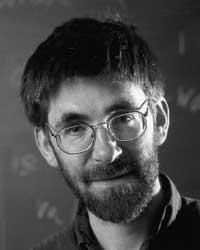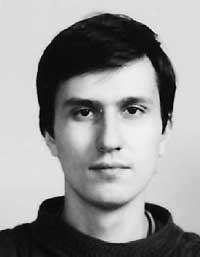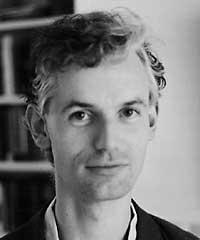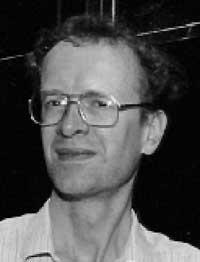Fields Awards 1998

These awards are very important in the world of mathematics and in a way the substitutions of the Nobel Prize are received (see Elhuyar December 1997). Science and Technology, number 126, 7. Page. ). This year he has adapted to the following mathematicians: Richard Borcherds, Maxim Conevich, Tim Govers and Curtis McMullen. The first two are English and the third is a professor at the University of Cambridge, is Russian by birth, a doctor in Bonn and currently works on AIDS (Institut des Hautes Etudes Scientifiques) in France and at Rutgers University in the United States, the fourth is a professor at Harvard.

The work of Richard Borcherds, belonging to the areas of Algebra and Geometry, has been the demonstration of conjecture baptized as moonshine. This word, in English, is used to express that an idea is crazy and absurd, and the Theory of Groups and elliptic functions were attributed to it as a result of a union of structures apparently separated from each other.
In his work he also used methods from Theoretical Physics, from the theory of strings.
Maxim Conevich's work area is Theoretical Physics, in line with the contributions of Richard Feynmann and Edward Witten. Eight years ago, he won the Fields prize, demonstrating a conjecture of the latter, showing the equivalence of two models of quantum gravitation. He has also worked the Theory of Knots, part of Topology. As usual in topology, it is necessary to find immutable properties to determine the different structures. On the way to the classification of knots, in an unfinished work, Cónevich has discovered the most fertile immutable that is known today.

Tim Govers has worked in Mathematical Analysis, more specifically in Functional Analysis. This field, oriented at the beginning of this century, has become indispensable, since the basic concepts are known to any student of Mathematics. However, in these basic structures we still have much to understand and Govers has allowed us to better understand the geometric structure of Banach's spaces, demonstrating that there can be spaces of low symmetry.
He uses combinatorial methods in his works and in recent times has offered a new demonstration of the so-called Emerszdi theorem using these methods. Since the theorem is known, it can be thought that giving a second demonstration is something secondary, but it is not so, as in this case, if a new path opens that can offer promising results.
The award given to Curtis McMullen, like the one given to Yoccoz four years ago, underscores the importance of the theory of dynamic systems. In the last twenty years, the word kaos has occupied a prominent place in scientific journals of dissemination. After this hides the work and knowledge of the dynamic systems and although it is an emerging field, the roots are found in the early mathematicians of the century. McMullen's work focuses on the approximate resolution of equations and on the understanding of the Mandelbrot set.
Plate of silver

In 1995 Fermat's last theorem was tested by the English Andrew Wiles, which does not appear in the previous list. The commission that has to decide who are the winners had little doubt about the authorship of this result, but since the Fields prize is only granted to the minors of forty years, Wiles, born in 1953, was not one of the candidates.
However, the International Mathematical Association could not forget the event and in the same act Wiles received as prize the silver plate of the Association. Subsequently, he offered one of the main conferences of the Congress.





